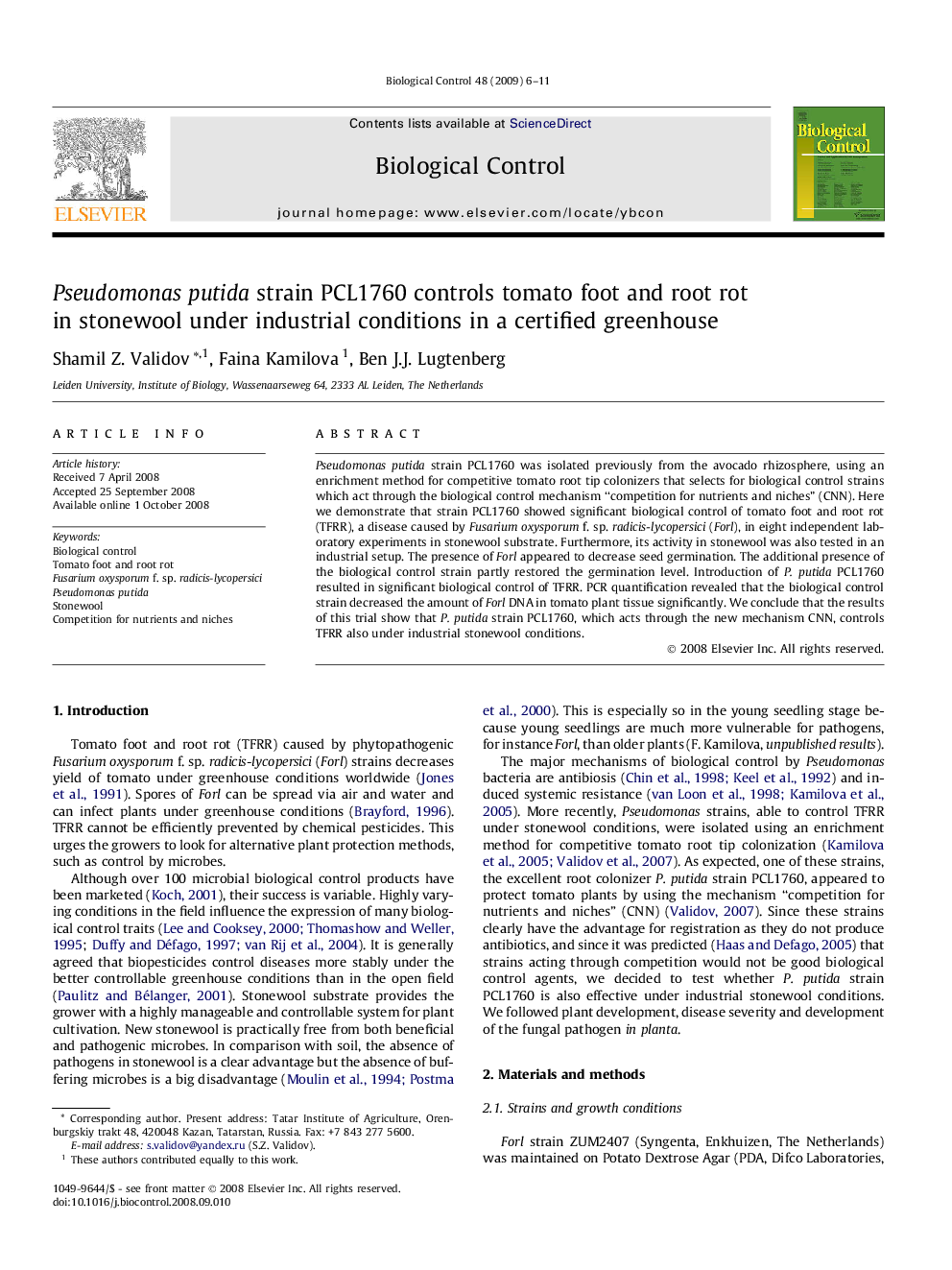| Article ID | Journal | Published Year | Pages | File Type |
|---|---|---|---|---|
| 4504655 | Biological Control | 2009 | 6 Pages |
Pseudomonas putida strain PCL1760 was isolated previously from the avocado rhizosphere, using an enrichment method for competitive tomato root tip colonizers that selects for biological control strains which act through the biological control mechanism “competition for nutrients and niches” (CNN). Here we demonstrate that strain PCL1760 showed significant biological control of tomato foot and root rot (TFRR), a disease caused by Fusariumoxysporum f. sp. radicis-lycopersici (Forl), in eight independent laboratory experiments in stonewool substrate. Furthermore, its activity in stonewool was also tested in an industrial setup. The presence of Forl appeared to decrease seed germination. The additional presence of the biological control strain partly restored the germination level. Introduction of P. putida PCL1760 resulted in significant biological control of TFRR. PCR quantification revealed that the biological control strain decreased the amount of Forl DNA in tomato plant tissue significantly. We conclude that the results of this trial show that P. putida strain PCL1760, which acts through the new mechanism CNN, controls TFRR also under industrial stonewool conditions.
